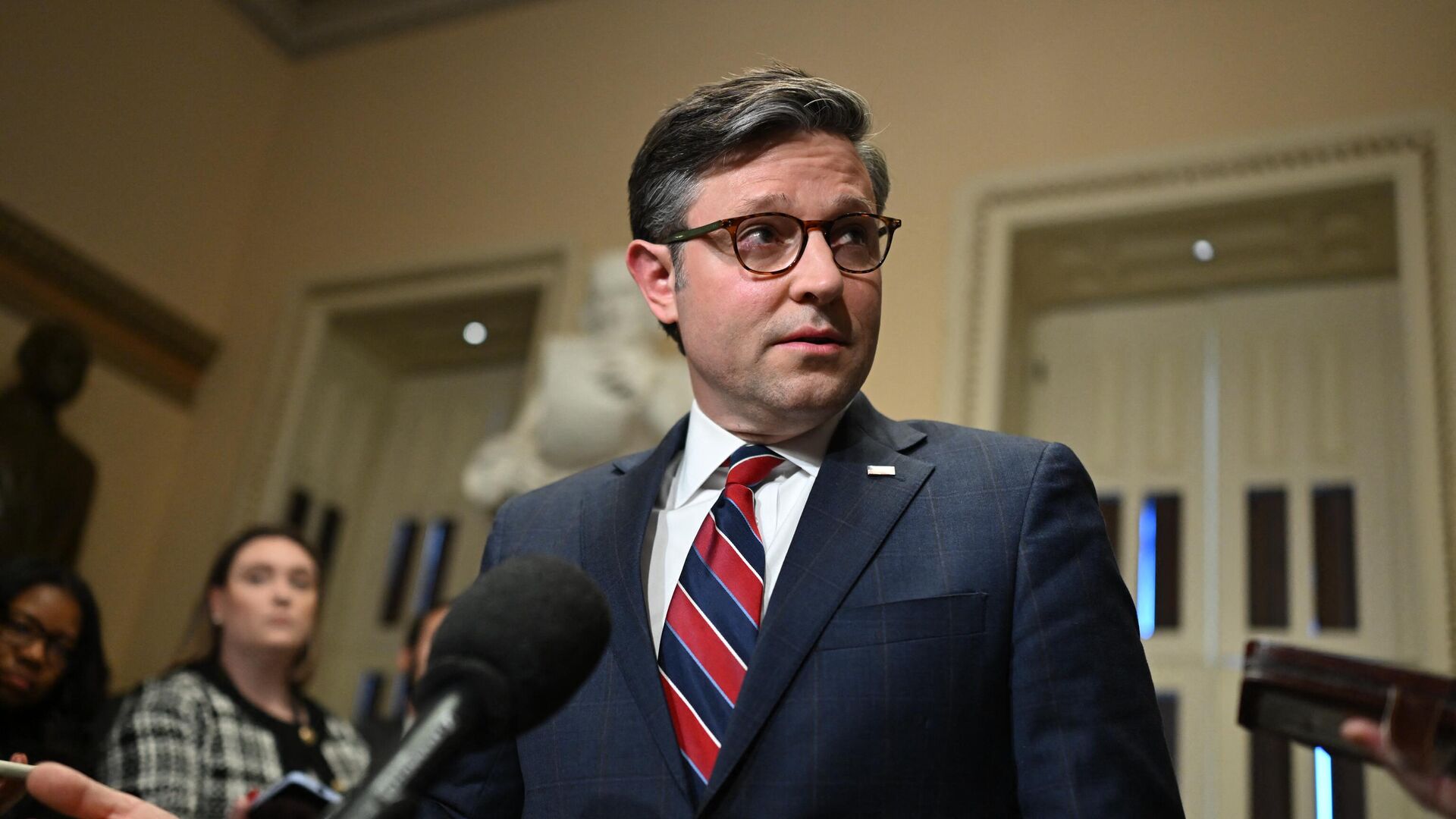https://sputnikglobe.com/20240115/us-congress-reveals-two-phase-interim-funding-strategy-1116166884.html
US Congress Reveals Two-Phase Interim Funding Strategy
US Congress Reveals Two-Phase Interim Funding Strategy
Sputnik International
US Congressional leaders have unveiled a strategic two-step funding plan. This approach involves temporarily funding certain federal agencies while negotiations on broader spending continue.
2024-01-15T04:01+0000
2024-01-15T04:01+0000
2024-01-15T04:01+0000
americas
us
mike johnson
chuck schumer
congress
shutdown
https://cdn1.img.sputnikglobe.com/img/07e7/0c/14/1115691031_0:0:3072:1728_1920x0_80_0_0_a5db3c51489f31fcb6b7e6c3e1ff17b2.jpg
Under this new arrangement, key government departments, including Agriculture, Energy, and Transportation, will receive interim funding until March 1. The remaining federal agencies, notably including Defense and Homeland Security, are set to have their funding extended through March 8.This approach represents the third such stopgap measure since the expiration of the fiscal 2023 funding last September.Facing a tight deadline of January 19 to prevent a shutdown, Congress is under pressure to approve this continuing resolution (CR). This move follows a similar structure to previous funding deadlines set for January 19 and February 2.However, the path to agreement has not been without contention. Hard-line House Republicans have expressed dissatisfaction with the short-term nature of the CR. They advocate for a longer-term stopgap, citing the Financial Responsibility Act's provisions for automatic spending cuts as a leverage point for budget negotiations, particularly on issues like border and migration policy.Despite these internal disagreements, Senate leaders are poised to initiate the CR's passage process, emphasizing the necessity for bipartisan cooperation to avoid a shutdown.
americas
Sputnik International
feedback@sputniknews.com
+74956456601
MIA „Rossiya Segodnya“
2024
News
en_EN
Sputnik International
feedback@sputniknews.com
+74956456601
MIA „Rossiya Segodnya“
Sputnik International
feedback@sputniknews.com
+74956456601
MIA „Rossiya Segodnya“
us congress, will there be us shutdown, what are the new funding deadlines in us, new continuing resolution
us congress, will there be us shutdown, what are the new funding deadlines in us, new continuing resolution
US Congress Reveals Two-Phase Interim Funding Strategy
US Congressional leaders have unveiled a strategic two-step funding plan. This approach, aimed at averting a fiscal crisis, involves temporarily funding certain federal agencies while negotiations on broader spending continue.
Under this new arrangement, key government departments, including Agriculture, Energy, and Transportation, will receive interim funding until March 1. The remaining federal agencies, notably including Defense and Homeland Security, are set to have their funding extended through March 8.
This approach represents the third such stopgap measure since the expiration of the fiscal 2023 funding last September.
Facing a tight deadline of January 19 to prevent a shutdown, Congress is under pressure to approve this continuing resolution (CR). This move follows a similar structure to
previous funding deadlines set for January 19 and February 2.
However, the path to agreement has not been without contention. Hard-line House Republicans have expressed dissatisfaction with the short-term nature of the CR. They advocate for a longer-term stopgap, citing the Financial Responsibility Act's provisions for automatic spending cuts as a leverage point for budget negotiations, particularly on issues like border and migration policy.
“I mean the difficulty is that, with less money, everybody’s trying to figure out how to make this work,” said Sen. Jerry Moran (Kan.).
Despite these internal disagreements, Senate leaders are poised to initiate the CR's passage process, emphasizing the necessity for bipartisan cooperation to avoid a shutdown.


